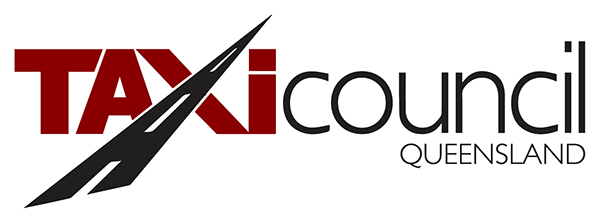Media release
19 July 2019
The Taxi Council of Queensland (TCQ) welcomes the decision made by the Australian Taxation Office (ATO) this month to continue the taxi travel fringe benefits tax (FBT) exemptions for employers and to not extend those exemptions to ride-sourcing trips with booked-hire services such as Uber, Ola and Didi.
Back when the Federal Parliament was contemplating travel benefits for the purpose of the FBT Act, there was a clear intention to provide exemptions for taxi travel under particular circumstances, namely single trip journeys beginning or ending at the employee’s place of work, or other places an employee must go as a result of sickness or injury. The FBT Act’s exemptions are specifically restricted to vehicles licensed to operate as a ‘taxi’, a category booked-hired services do not fall under.
TCQ CEO Blair Davies says the ATO’s decision is entirely consistent with the letter of the FBT law and also with the way it was intended to operate in practice.
“The FBT exemptions were specifically restricted to licensed taxis because they provide a basic, essential and accessible service for employees and the wider community. The exemptions passed the “pub test” because they weren’t made available for high-end luxury travel, or for services that may be subject to exorbitant surcharges or that may be provided by related or private parties at contrived prices,” Mr Davies said.
“Ride-sourcing platforms that want to take their profits offshore and pay minimal taxes in Australia really have no right to be putting their hand up for tax exemptions that they clearly don’t deserve.
“We are pleased the ATO has stood its ground and not caved in to lobbying from greedy interest groups on this issue. Extending FBT exemptions to ride-sourcing services would have served to benefit wealthy overseas based platforms rather than any interests of the Australian community.”
Through their national peak body, the Australian Taxi Industry Association (ATIA), taxis have been working with the ATO and the Federal Government to promote taxation laws that apply fairly and evenly across the Personalised Transport Sector. When ride-sourcing services first emerged in 2014, the ATIA highlighted the anomaly of taxi and limousine drivers having to register for GST and declare their earnings for income tax purposes while their ride-sourcing counterparts could potentially pay little or no tax, flying under the proverbial radar.
“When the GST Act was being passed back in 1999, the Commonwealth Parliament adopted the view that taxi and limousine services should be treated the same, and that with no exceptions, all taxi and limousine drivers needed to register for and pay GST,” explained Mr Davies.
“Accordingly, it really wasn’t surprising at all when, down the track in 2014-15, the ATO looked at ride-sourcing services competing as virtual substitutes for taxis and limousines and determined that their drivers also needed to be treated the same and had to register for GST.
“From our perspective, the ATO got its decisions right in respect to both GST and FBT. With GST, the law made no distinction between taxi and limousine drivers and so ride-sourcing drivers logically should be treated the same. With FBT, the law clearly differentiated taxi services from limousine and other services, and no case could reasonably be made for ride-sourcing services being considered as basic, essential and accessible services.”
In welcoming this decision, TCQ believes the message is clear for Australian businesses.
“There is nothing complicated about the FBT law for businesses providing travel benefits for employees – keep it simple and just use taxis.”
TCQ congratulates ATIA on their representation on behalf of the industry during the ATO’s FBT review. Arguing for the taxi travel exemption to continue and for it not to be extended ride-sourcing trips was a principled position and the right decision was ultimately made.
Ends
